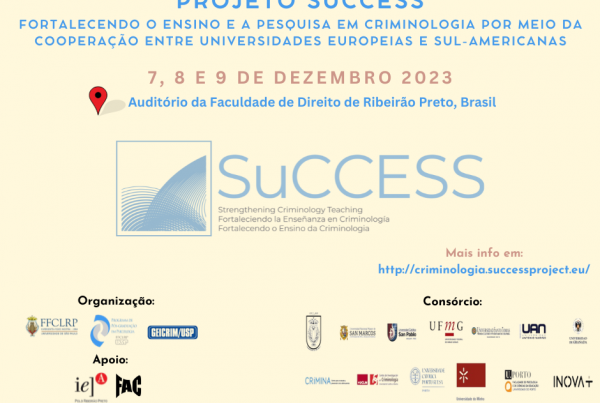The Santo Tomás University is leading the way and renovating its educational offers in the area of criminology by adopting a non-punitive view.
In the framework of its participation in the SuCCESS project, the team of teachers and researchers from the law department of the Santo Tomás University (Bogotá, Colombia) has developed a new master’s degree in Criminology and Criminal Public Policy that is now under approval.
This master’s program is based on two essential paradigms: on the one hand, criminalization needs to respect the principle of criminal law as a last resort, and on the other hand, the criminal policy must not be focused on criminalization.
Therefore, the program takes a non-punitive view: Criminal policy needs to focus on the causes of social conflict, but not by confronting it. Instead, social conflict must be addressed by ways of understanding its origin to comprehend its complexity. In this way, Public policy, which is included Criminal policy, can decide which tools are the more adequate to avoid social conflict and, like this, prevent the commission of those behaviours.
By implementing this view, a government can expect, within what is reasonable, a sensible decrease in those behaviours that cause social conflict and, of course, in criminal conduct. Moreover, this will also reduce the public expenditure on criminal justice and all the other systems around it (for example, public health).
More information will come soon, but if you wish to learn more about this new diploma, please contact Rafael Velandia Montes at rafaelvelandia@usantotomas.edu.co.





